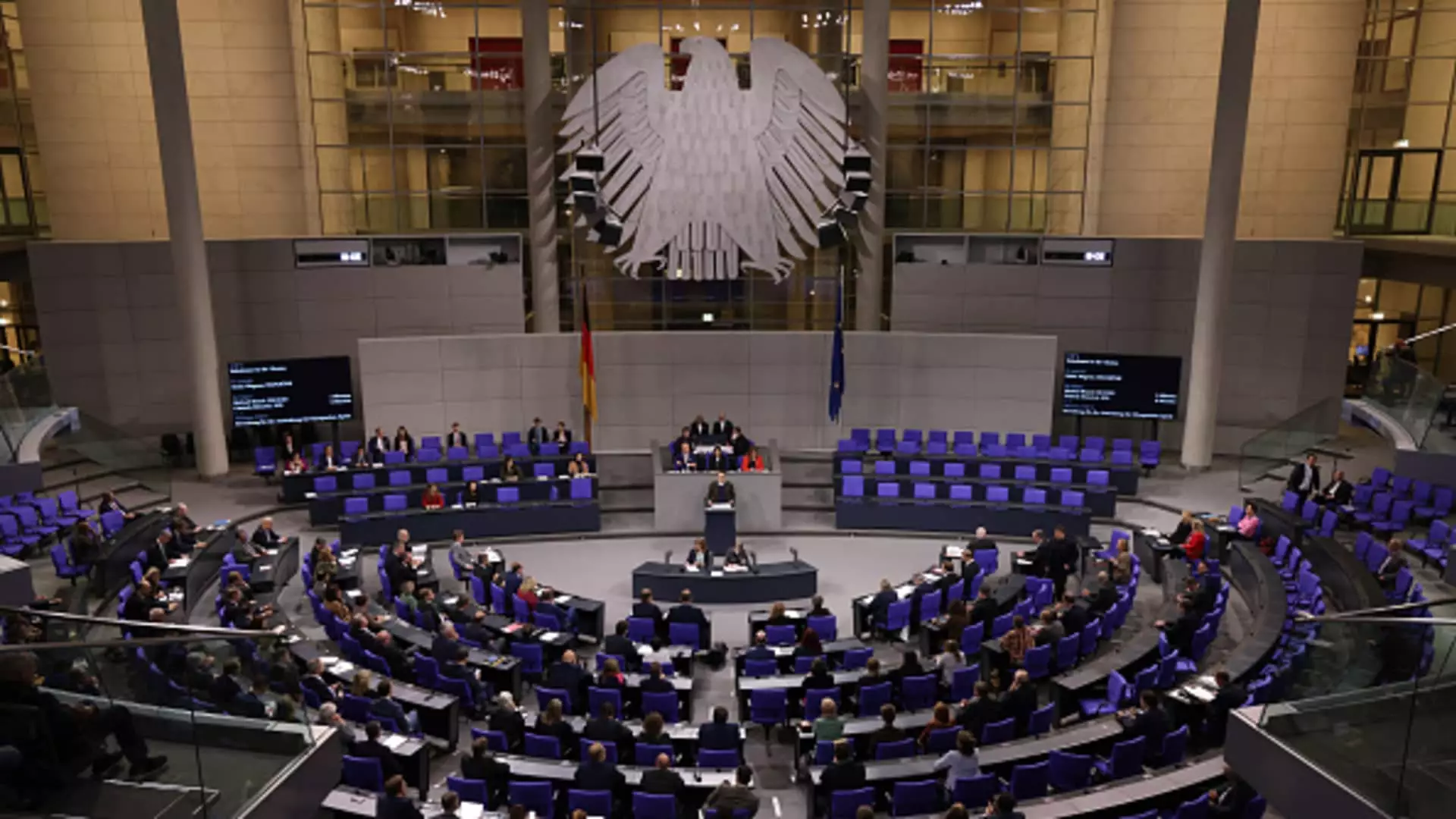In a striking move emblematic of political turbulence, President Frank-Walter Steinmeier announced the dissolution of Germany’s lower house of parliament, facilitating snap elections scheduled for February 23. This decisive action followed the unraveling of Chancellor Olaf Scholz’s three-party coalition, which has faced mounting challenges to its stability. In a characteristic statement reflecting his commitment to robust governance, Steinmeier emphasized the necessity of a “government capable of acting,” particularly in tumultuous times like these. His call for early elections underscores a collective yearning for clarity and effective leadership amidst ongoing political uncertainty.
A key highlight of Steinmeier’s address was his insistence that political processes must return to focusing on tangible problem-solving. This perspective resonates deeply in a nation grappling with a plethora of issues, from economic stress to social unrest. Effective governance necessitates an ability to navigate complexities and implement pragmatic solutions that can foster public confidence. By prioritizing issue-based agendas over partisan squabbling, Germany can work toward a more actionable political framework that speaks to the needs of its citizens.
As the campaign season ramps up, Steinmeier raised vital concerns regarding the integrity of the electoral process. The specter of external influence looms large, threatening the foundational principles of democracy. Drawing parallels with recent electoral interference noted in other countries, he pointed to the pervasive challenges posed by social media platforms, specifically X, underscoring the critical necessity for transparency and fairness in campaigning. Ensuring the legitimacy of elections is paramount—not only to foster trust among voters but also to uphold democratic values in an increasingly polarized environment.
The current political tableau is marked by an erosion of confidence in Scholz’s government, illustrated by a recent parliamentary vote of no confidence. The exit of his coalition partner, Finance Minister Christian Lindner’s Free Democrats, has left Scholz presiding over a caretaker government, characterized by diminished legislative power. As election campaigns unfold, conservative challenger Friedrich Merz emerges with a commanding lead, amplifying criticisms directed at the incumbent administration for perceived overregulation and stifled economic growth. The potential shift in power dynamics could herald a reconfiguration of policy priorities and governance strategies in Germany.
Another notable development in the current political context is the ascent of the far-right Alternative for Germany (AfD) party. Polling data suggests that they have surpassed the Social Democrats, complicating the formation of viable coalitions. While traditional parties have shunned collaboration with the AfD, their growing presence may necessitate rethinking coalition strategies, ultimately leading to a more fragmented political landscape. This scenario not only poses challenges for mainstream parties but also could redefine the electorate’s expectations for governance.
As Germany stands on the brink of early elections, the pathway ahead remains fraught with uncertainty. The calls for stable, pragmatic governance; concerns over electoral integrity; and the shifting dynamics among political parties signal a period of significant transformation. For voters, the upcoming elections represent not merely a choice between candidates but a critical juncture in Germany’s democratic evolution.


Leave a Reply